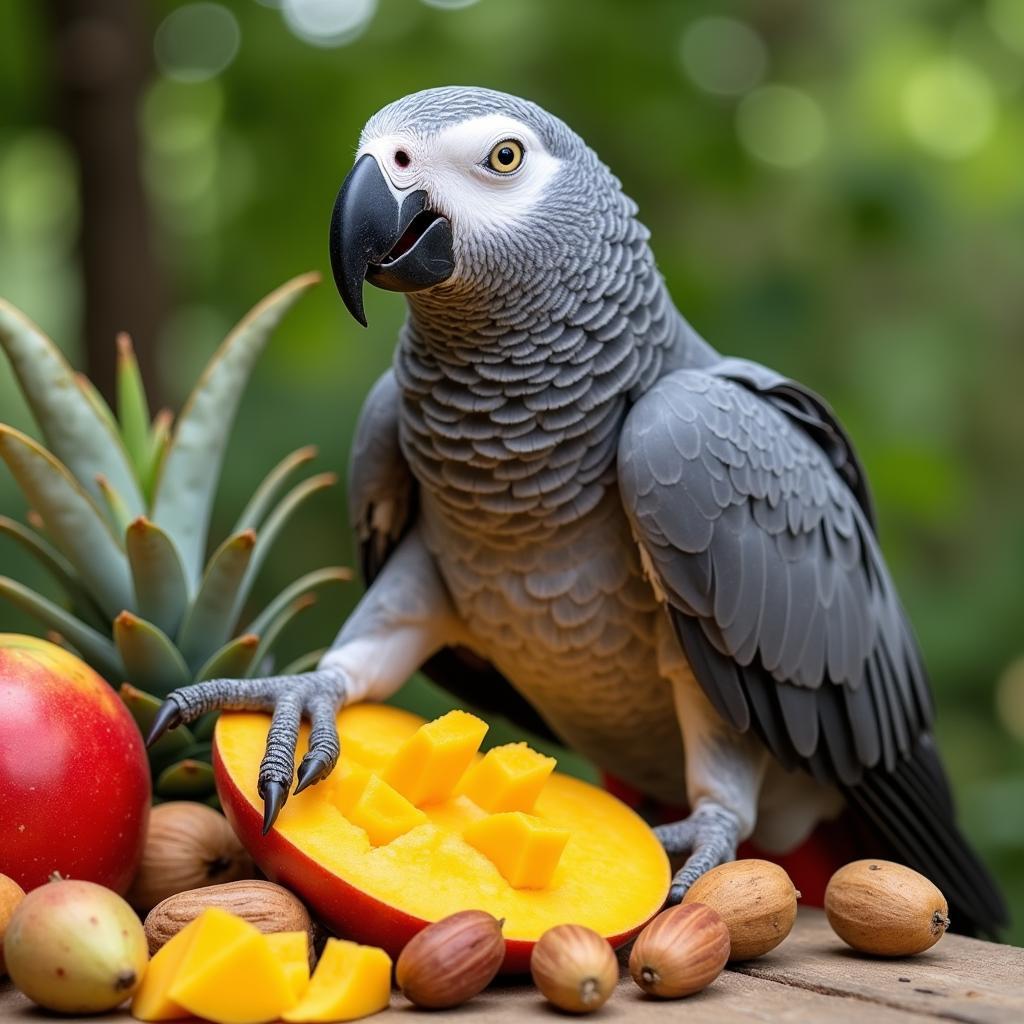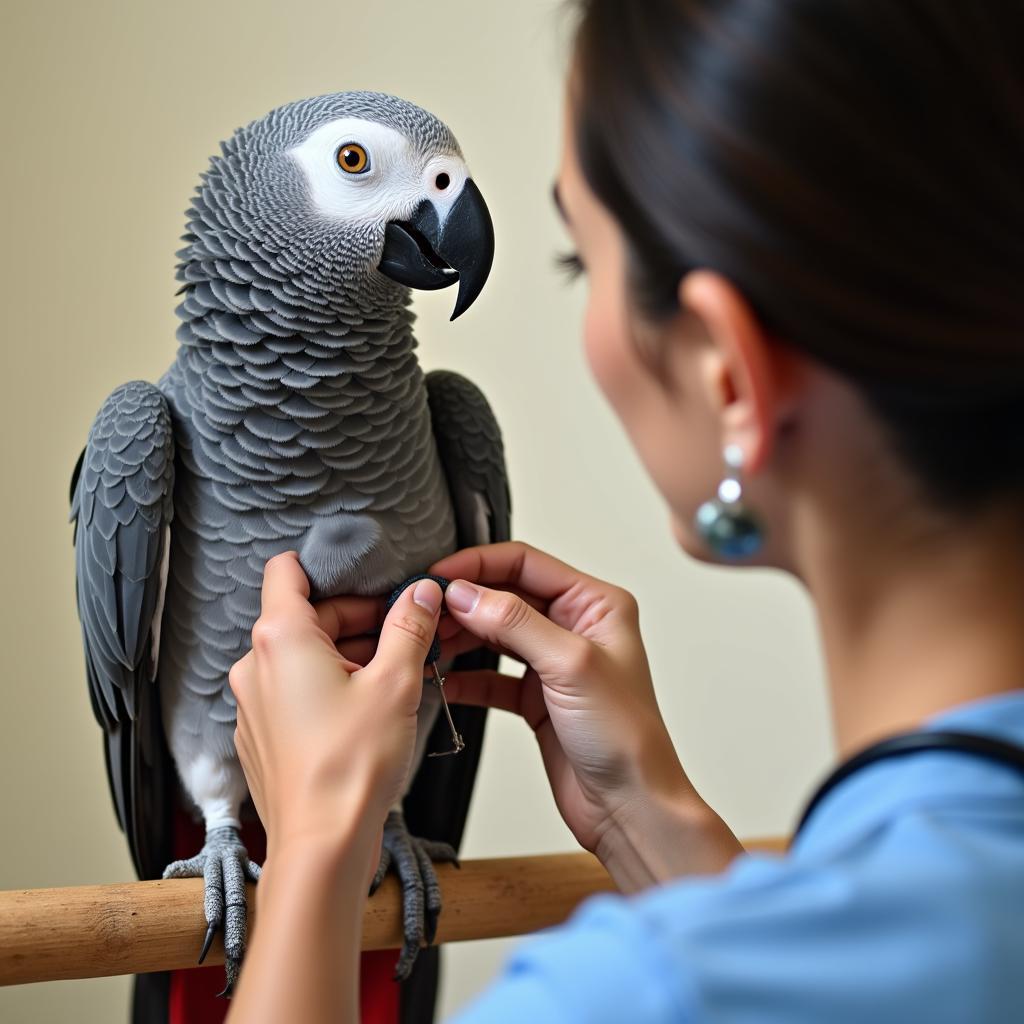Mastering African Grey Parrot Husbandry: A Comprehensive Guide
African Grey Parrot Husbandry involves understanding their complex needs, from diet and environment to enrichment and social interaction. Proper husbandry ensures these intelligent birds thrive in captivity, enjoying a long, healthy, and fulfilling life.
Understanding the Basics of African Grey Parrot Husbandry
Owning an African grey is a significant commitment. These birds can live for 50-80 years, requiring consistent care throughout their lifespan. African grey parrot husbandry is not just about providing food and water; it encompasses every aspect of their well-being, focusing on creating an environment that mimics their natural habitat as closely as possible. This includes understanding their nutritional needs, providing a stimulating environment, and recognizing the importance of social interaction.
Diet and Nutrition for Your African Grey
A crucial element of African grey parrot husbandry is providing a balanced and varied diet. While high-quality formulated pellets should form the foundation of their diet (around 70%), it’s essential to supplement with fresh fruits, vegetables, and healthy nuts. Variety is key! Offering a diverse range of foods ensures your parrot receives all the necessary vitamins, minerals, and antioxidants for optimal health. Avoid avocado, chocolate, and caffeine, as these are toxic to parrots.
 African Grey Parrot Enjoying a Healthy Meal
African Grey Parrot Enjoying a Healthy Meal
Creating the Ideal Environment
African greys need a spacious cage that allows for climbing, playing, and flapping their wings. The cage should be placed in a well-lit area of the house, away from drafts and extreme temperatures. Enrichment is crucial for preventing boredom and behavioral issues. Providing a variety of toys, such as puzzles, foraging toys, and chewable wood, keeps their intelligent minds stimulated. Rotate toys regularly to maintain their interest.
Social Interaction and Bonding
African greys are highly social creatures, and in the wild, they live in flocks. In captivity, their human family becomes their flock. Regular interaction, training, and playtime are crucial for their emotional well-being. Talking to your parrot, teaching tricks, and providing opportunities for physical contact strengthens the bond and fosters trust.
Addressing Common Health Concerns in African Greys
As part of responsible African grey parrot husbandry, understanding potential health problems is crucial. Feather plucking, often a sign of stress or boredom, can be prevented with proper environmental enrichment and social interaction. Hypocalcemia, a calcium deficiency, can be avoided through a balanced diet and access to a cuttlebone. Regular veterinary checkups are essential for early detection and treatment of any health issues.
The Importance of Routine Veterinary Care
Regular veterinary check-ups are vital for preventative care. An avian veterinarian can identify potential health problems early on, before they become serious. They can also advise on proper nutrition, environmental enrichment, and behavioral management.
“Regular veterinary visits are a cornerstone of good African grey parrot husbandry,” says Dr. Ava Johnson, an avian veterinarian with over 20 years of experience. “These check-ups allow us to monitor the bird’s overall health, provide necessary vaccinations, and address any potential issues proactively.”
 African Grey Parrot Undergoing a Vet Checkup
African Grey Parrot Undergoing a Vet Checkup
Conclusion: A Lifelong Commitment to Your Feathered Companion
African grey parrot husbandry requires dedication, patience, and a deep understanding of these remarkable birds. By providing a stimulating environment, a balanced diet, regular interaction, and proper veterinary care, you can ensure your African grey thrives and enjoys a long, healthy, and fulfilling life. Remember, African grey parrot husbandry is a rewarding journey of companionship with one of the most intelligent creatures on the planet.
FAQ:
- What is the average lifespan of an African Grey Parrot? African Greys can live for 50-80 years.
- What should I feed my African Grey? A diet of primarily high-quality pellets (70%) supplemented with fresh fruits, vegetables, and healthy nuts.
- How can I prevent feather plucking? Provide a stimulating environment, plenty of toys, and regular social interaction.
- How often should I take my African Grey to the vet? Annual check-ups are recommended.
- What are the signs of a healthy African Grey? Bright eyes, smooth feathers, active behavior, and a healthy appetite.
- How much space does an African Grey need? A spacious cage that allows for climbing, playing, and flapping their wings is essential.
- Can African Greys talk? Yes, they are renowned for their exceptional mimicking abilities.
Need More Help with African Grey Parrot Husbandry?
For further guidance on African grey parrot care or any other parrot-related inquiries, explore our other articles on parrot care, nutrition, and training.
When you need assistance, contact us via Phone: +255768904061, Email: kaka.mag@gmail.com or visit us at Mbarali DC Mawindi, Kangaga, Tanzania. We have a 24/7 customer service team.


